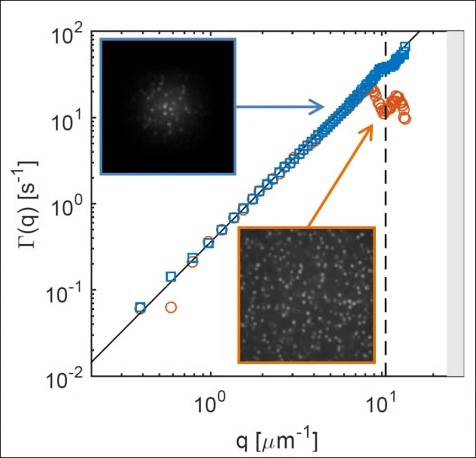 Image credit: Springer
Image credit: SpringerAbstract
Differential Dynamic Microscopy (DDM) analyzes traditional real-space microscope images to extract information on sample dynamics in a way akin to light scattering, by decomposing each image in a sequence into Fourier modes, and evaluating their time correlation properties. DDM has been applied in a number of soft-matter and colloidal systems. However, objects observed to move out of the microscope’s captured field of view, intersecting the edges of the acquired images, can introduce spurious but significant errors in the subsequent analysis. Here we show that application of a spatial windowing filter to images in a sequence before they enter the standard DDM analysis can reduce these artifacts substantially. Moreover, windowing can increase significantly the accessible range of wave vectors probed by DDM, and may further yield unexpected information, such as the size polydispersity of a colloidal suspension.